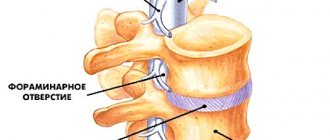Growing teenagers usually gain weight gradually. Healthy weight gain is essential, but excess calorie accumulation can be a concern. A sudden increase in kilograms may also be abnormal.
Poor diet and sedentary lifestyle are the most common causes of excessive weight gain in teenagers. Sometimes it can be hormonal changes during puberty, and in some cases it can be an underlying medical condition.
Although it is necessary to control excessive weight gain in adolescents, they should not starve themselves to limit the normal weight gain necessary for their healthy development.
In this post, Mentalar will tell you the best ways to gain weight in teens and the top five causes of excess weight and what they should do to maintain a healthy weight.
What should be the Ideal Weight for Teenagers?
To determine your teen's ideal weight, there are several factors to consider in addition to age.
- The Centers for Disease Control and Prevention Academy of Pediatrics recommend using a BMI calculator to determine whether a teen is normal weight, overweight, or obese (1).
- The BMI calculator takes into account the teenager's height and age when determining the weight threshold.
- BMI for teenagers is interpreted differently, so you should refer to the BMI chart standardized for children.
- “Because there are changes in weight and height with age and their association with obesity, BMI levels among children and adolescents should be expressed relative to other children of the same sex and age (2).” Therefore, a teenager's weight is assessed in comparison to other teenagers and is determined as a percentile.
- The minimum is the 5th percentile and the highest is the 95th percentile. When a teen's BMI is equal to or greater than the 95th percentile, they are considered obese because it means the teen's weight is greater than 95% of teens.
Ultimately, a teen's BMI score on the percentile chart will determine whether he or she is a healthy weight or not.
What Causes Excess Weight in Teens?
Here are some reasons that contribute to weight gain in teenagers (3).
Eating junk food
- Unhealthy snacks between meals can accumulate extra calories, causing weight gain. This is especially true for teenagers who are “bored” and often go to the kitchen or refrigerator in search of food that will make them feel better.
- Teens can pack on the pounds if they eat high-calorie, low-nutrient fast food, even if they have a nutritious diet at home.
- Access to unhealthy food, coupled with the freedom that pocket money gives them, can also lead to unhealthy eating patterns. Regularly overeating fast food and processed foods can lead to weight gain.
Insufficient physical activity.
- To stay healthy, teenagers need to exercise. When a teenager is not physically active, he invariably gains weight.
- Children who don't eat unhealthy foods can also gain extra pounds if they don't exercise at all.
- Teenagers burn fewer calories at rest, according to research (4). The study found that 15-year-olds burn 400-500 fewer calories per day at rest compared to what they did at age ten.
Puberty
- Puberty itself does not cause significant weight gain. However, a growth spurt usually causes increased hunger, which can accelerate weight gain in teens who overeat and don't get enough physical activity.
- Children in their early teens (ages 13 to 14) typically gain weight naturally as a result of hormonal changes during puberty. Weight gain may be more noticeable in girls (5) .
- A year after puberty, a child may gain about 3 kg (6) .
Psychological reasons
- Changes in the body make teenagers very shy and sensitive about their figure. They may compare themselves excessively to their peers and feel pressured to have the “ideal body” (7) . Dissatisfaction with not having an ideal body can lead to depression, which in turn can lead to unhealthy eating and subsequent weight gain (8) .
- Some teenagers mistakenly believe that they are fat, even when they are not. This can ultimately lead to stronger faith. Some experts argue that constantly telling a teenager that they are fat can lead to weight gain (9) .
- Stress is also associated with weight gain. Research shows that stress and depression can lead to higher consumption of sugary and fatty foods (10). Food is likely to work as a coping mechanism for depression and chronic stress.
For health
- Hypothyroidism is a condition in which the thyroid gland becomes underactive and produces less thyroid hormone, one of the symptoms of which is weight gain (11) . Your teen may also feel tired and tired most of the time. It is most common in girls, especially if another woman in the family has thyroid disease.
- Cushing's syndrome is a rare disease that causes the body to produce too much cortisol, a stress hormone produced by the adrenal gland (a gland located above each kidney). One of the significant symptoms of this condition is weight gain. Accumulation of fat at the base of the neck is another symptom. Children with Cushing's syndrome are prone to obesity and also grow slowly (12) .
- Some medications can also cause weight gain due to the compounds they contain. Sometimes medications can cause complications, which in turn lead to weight gain. An example is glucocorticoids, which are a type of steroid hormone commonly used to treat immune system diseases such as asthma and lupus. Long-term use of glucocorticoids can cause Cushing's syndrome, which in turn leads to weight gain.
Excessive weight gain can be controlled through lifestyle and diet changes. But if this doesn't help, you may need to consult your doctor.
Why do teenagers get fat?
The main factors are the same as in adults. First, overeating. During the COVID-19 pandemic, it turned out to be largely a result of stress. Like adults, teenagers consumed their experiences with sweets and other high-calorie foods.
Secondly, physical inactivity, which we all found ourselves hostage to during quarantine, played a role. We (including teenagers) moved less and did not receive the necessary physical activity.
Article on the topic
What are the risks of obesity for a teenager?
Thirdly, hormonal changes that occur during adolescence also contribute to excess weight gain. In girls, puberty (the period of puberty, 9-16 years) is considered critical, and in boys, prepuberty (the period before puberty, up to 10-13 years). At this time, fat and carbohydrate metabolism in children is most often disrupted, so boys and girls “overgrow” with extra pounds.
Let me explain what this is connected with. During puberty, estrogens (female sex hormones) work against girls. Menstruation is impossible without a certain supply of fat. The hormone leptin is produced from fat. This is what is needed for the production of estrogen. If a girl does not have enough sex hormones, her body forces her to eat more. This produces more leptin and, accordingly, estrogen. The problem is that hormones are produced unevenly. And if a girl eats both cheeks out of habit, and not because there is a physical need, overeating is inevitable. Hence the gain of excess weight.
For a boy, on the contrary, testosterone and other male hormones help him stay at a normal weight during puberty. The energy from fat cells goes into muscle mass. It's another matter if a boy has low testosterone levels, if he has not yet reached this period. The teenager will begin to gain weight, and his puberty will be delayed.
The child’s weight may also depend on other hormones, the failure of which is possible during puberty. Body weight is affected by thyroid hormones, cortisol, and insulin.
It would seem that girls are more prone to being overweight, but in boys this problem is more common. This is due to the fact that girls tend to take care of their appearance. Boys take this issue more simply, as do their parents.
Children's question. How to deal with excess weight in children and teenagers? More details
When Should You Worry About Weight Gain?
Talk to your doctor about your teen's weight gain if:
- A child gains a lot of weight after 16 years of age and even towards the end of adolescence (2) (4).
- You feel like your teen is gaining weight due to overeating, which itself could be caused by constant peer pressure, body image issues, or other stressors.
- It seems that the weight gain began after the child was prescribed medication. If this is the case, talk to your doctor about it.
- The body forms abnormally large deposits of fat around the neck, face and abdomen. Reddish-pink stretch marks appear on the skin of the abdomen (these are symptoms of Cushing's syndrome).
- The child also looks tired, lethargic and complains of muscle pain.
As a parent, you may notice that something is wrong with your child's weight, behavior and eating habits. Watching for changes and keeping track of your child's weight and overall health can help you manage it better.
If you are prepared for any sudden or abnormal changes and act immediately, weight gain can be controlled sooner. If you can't help your teen better control their weight, seek medical help and the help of a dietitian to find out the real reason for the weight gain. Always monitor your teen's correct BMI, pay attention to any changes in their eating patterns, and intervene early to prevent excess weight gain.
Recommendations:
1. Age reference tables for children's growth; Medical library 2. About BMI of children and adolescents; Centers for Disease Control and Prevention 3. Kilogram Control and Teens ; Children's Hospital of the Krasnodar Territory 4. Increase in kilograms in adolescents to a sharp decrease in burned calories; 5. Stages of puberty: what happens to boys and girls; 6. Physical changes during puberty; Academy of Pediatrics 7. Adolescent development; Library of Medicine 8. Felton et al., Association of weight change with depressive symptoms in adolescence; National Center for Biotechnology Information 9. Can the thought of being fat make you fat? ; Norwegian University of Science and Technology 10. Depressive symptoms and observed eating in young people.; National Center for Biotechnology Information 11. Reduced activity of the thyroid gland (hypothyroidism).; 12. Cushing's syndrome.; Ministry of Health
WHAT ELSE TO READ
City hospital of the resort city of Gelendzhik
Young people born in the 1990s are two to three times more likely to be obese than other family members born between the 1950s and 1980s, including their older brothers and sisters. This was shown by a recent study conducted by British scientists. Now this metabolic disorder is observed to one degree or another in an ever-increasing number of young people. Obesity is rapidly becoming “younger”. And now many teenagers aged 12 to 17-18 years old suffer from this pathology.To determine excess weight, there is an indicator called body mass index (BMI). To calculate BMI, you need to divide your weight (in kilograms) by your height squared (in meters). If the BMI is between 19 and 25, then the person has no problems with excess weight. A BMI of 25 to 30 means overweight, 30 or more means obese.
Reasons for the increase in obesity among young people
Sedentary lifestyle
The motor activity of today's teenager is much less than that of his peers living 1-2 generations ago. The introduction of various scientific and technical innovations into everyday life plays a fundamental role in this. The vast majority of modern youth prefer long periods of sitting at a computer, tablet or laptop to live communication, dancing, hiking, and sports games. The way of life itself, which has radically changed over the past decades, also played a certain role in the formation of excess weight. Many modern boys and girls live in urban conditions. And they don’t need to help their parents with housework - chopping wood, caring for domestic animals, working in the fields.
Unhealthy diet
Nutrition, like lifestyle, has also changed radically. And not for the better. Thanks to intrusive advertising, fast food is very popular among young people. Hamburgers, cheeseburgers, hot dogs, shawarma contain trans fats, synthetic additives, and easily digestible carbohydrates. The physiological value of these components is not only minimal, but zero. Without bringing any benefit, but only harm, they are quickly deposited in soft tissues in the form of fatty deposits. The same is true for other seemingly harmless by-products - crackers, candy bars, and even soft drinks. And nutritious food, containing in optimal quantities everything a young body needs, can be found less and less often on store shelves. In addition, some parents, in their care, lose all sense of proportion and reality - a son or daughter with a normal weight seems to them to be excessively thin. There is banal overfeeding.
Hormonal imbalance
Puberty is accompanied by changes in the levels of various hormones. Moreover, these changes do not occur smoothly, but spasmodically. At a certain stage, dishormonal disorders may manifest as excess weight .
Accelerating the pace of life
The vast majority of teenagers do not have a measured lifestyle. They are in a hurry, they have a lot to do. In the constant rush, there is no time to even eat properly. But eating should be regular and leisurely. Frequent snacks in small portions on the go also do not contribute to weight loss.
Stress, sleep and rest disorders
Teenage maximalism, emotional lability - all these are reasons for negative emotional manifestations. Young people can experience nervous stress and strong emotions even where there are no objective reasons for this. Frequent disturbances in sleep patterns, in particular lack of sleep, are also characteristic.
Consequences of excess weight
Excess weight often causes disruption of many body functions. First of all, being overweight increases the risk of cardiovascular disease. Excess body weight has a negative impact on the musculoskeletal system, causing foot deformity, osteoarthritis of large joints and other disorders. Also, excess weight leads to various metabolic disorders, which can result in the development of atherosclerosis and diabetes. In the near or distant future, erectile dysfunction in boys, menstrual irregularities in girls, and, as a result, infertility may be observed.
To prevent the development of obesity, you need to adhere to several basic points:
* give preference to healthy foods and do not consume more than is necessary for the body to function properly;
* lead an active lifestyle - if your job is sedentary, then in your free time you should play sports and walk more in the fresh air;
* it is important to get a good night's sleep and avoid stressful situations that can provoke disturbances in metabolism or the functioning of the endocrine glands.
If lifestyle changes, physical activity and good nutrition cannot solve the problem, you should consult a doctor to rule out more serious causes - genetic abnormalities, pathology of the endocrine system.
GBUZ "Center for Medical Prevention" of the Ministry of Health of the Krasnodar Territory.










